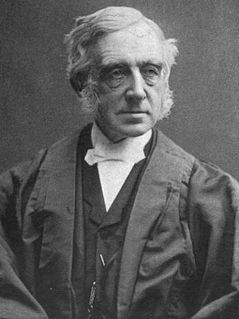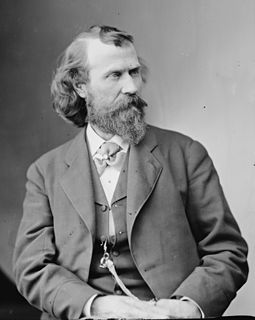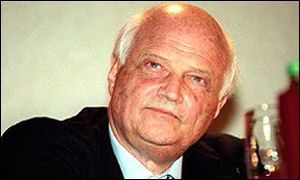A Quote by John Ruskin
Pleasure comes through toil, and not by self indulgence and indolence. When one gets to love work, his life is a happy one.
Related Quotes
It is indolence... Indolence and love of ease; a want of all laudable ambition, of taste for good company, or of inclination to take the trouble of being agreeable, which make men clergymen. A clergyman has nothing to do but be slovenly and selfish; read the newspaper, watch the weather, and quarrel with his wife. His curate does all the work and the business of his own life is to dine.
Man's books are but man's alphabet,
Beyond and on his lessons lie -
The lessons of the violet,
The large gold letters of the sky;
The love of beauty, blossomed soil,
The large content, the tranquil toil:
The toil that nature ever taught,
The patient toil, the constant stir,
The toil of seas where shores are wrought,
The toil of Christ, the carpenter;
The toil of God incessantly
By palm-set land or frozen sea.
None has more frequent conversations with a disagreeable self than the man of pleasure; his enthusiasms are but few and transient; his appetites, like angry creditors, are continually making fruitless demands for what he is unable to pay; and the greater his former pleasures, the more strong his regret, the more impatient his expectations. A life of pleasure is, therefore, the most unpleasing life.
Self-indulgence takes many forms. A man may be self-indulgent in speech, in touch, in sight. From self-indulgence a man comes to idle speech and worldly talk, to buffoonery and cracking indecent jokes. There is self-indulgence in touching without necessity, making mocking signs with the hands, pushing for a place, snatching up something for oneself, approaching someone else shamelessly. All these things come from not having the fear of God in the soul and from these a man comes little by little to perfect contempt.
Joy is not the same as pleasure or happiness. A wicked and evil man may have pleasure, while any ordinary mortal is capable of being happy. Pleasure generally comes from things, and always through the senses; happiness comes from humans through fellowship. Joy comes from loving God and neighbor. Pleasure is quick and violent, like a flash of lightning. Joy is steady and abiding, like a fixed star. Pleasure depends on external circumstances, such as money, food, travel, etc. Joy is independent of them, for it comes from a good conscience and love of God.
There is no doubt of the essential nobility of that man who pours into life the honest vigor of his toil, over those who compose the feathery foam of fashion that sweeps along Broadway; who consider the insignia of honor to consist in wealth and indolence; and who, ignoring the family history, paint coats of arms to cover up the leather aprons of their grandfathers.
It all begins, I maintain, with that powerful and underutilized thing called love. God's love for the individual is displayed by those people who reflect his love in their words and deeds. It ultimately gets understood and accepted by the child in poverty, and through that individual's love for others, the world gets changed.





































